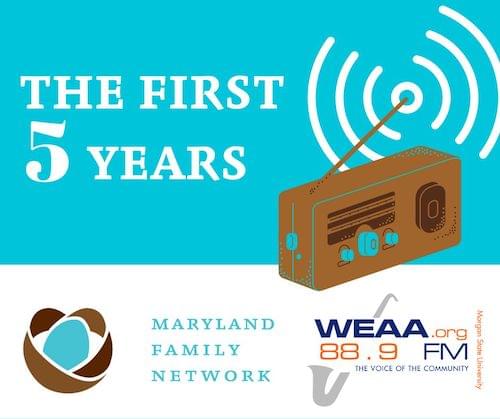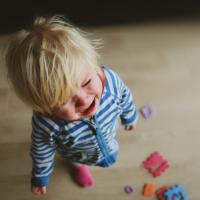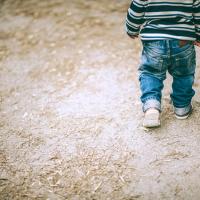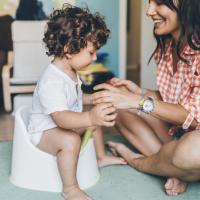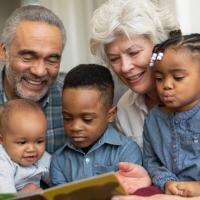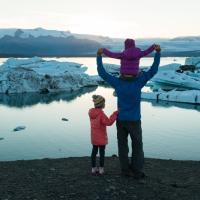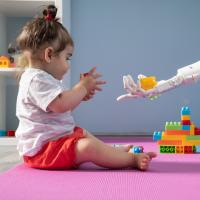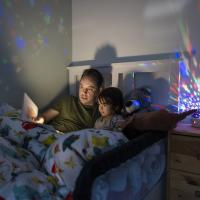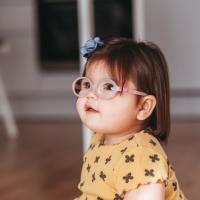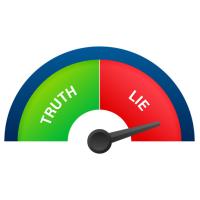In studies taking place over several decades, researchers have confirmed the long-term negative impact of maltreatment on children. It can affect their behavioral, social, mental, and physical health well into adulthood. There are many kinds of abuse that children can be subject to, but researchers say the prevalence of emotional abuse is rising.
Resources
Childhood verbal abuse as a child maltreatment subtype: A systematic review of the current evidence (Science Direct)
What is Abuse? (Child Help Line)
Reporting Suspected Child Abuse or Neglect (MD Department of Human Services)
Something we don’t talk a lot about is how scary it is being a parent. It’s that nagging anxiety that’s always there that something bad could happen to your child. You’re not alone in feeling this. Let’s talk about what can be done to calm these fears a little bit.
Resources
5 Things You Need to Teach Your Kids About Getting Lost (Today's Parent)
How to Teach Your Kids About Consent (Very Well Family)
Stranger Danger and Stranger Safety (Johns Hopkins Medicine)
Do you have to go potty? Are you sure? Doug Lent from Maryland Family Network is here today to share a few tips to ease the transition from diapers to potty.
Resources
Tips on Starting Potty Training (What to Expect)
When Is Your Child Ready To Start Potty Training (National Diaper Bank Network)
Potty training: How to get the job done (Mayo Clinic)
Reading stories together is beneficial for adults and young children but telling stories is important too. Since the beginning of time, every civilization has had storytellers. Doug Lent from Maryland Family Network is here with tips about how to continue this tradition with your pre-school age child or grandchild.
Resources
Family Stories (NEA)
Family Storytelling and the Benefits for Children (University of Nevada, Reno)
Climate change impacts how we treat children according to a new study from the University of Texas. Listen for more information about this study.
Resources
What if your child care provider was a robot? A study in Japan sought to answer that question.
Resources
We have some bad news. Your child is probably suffering from nyctophobia. It's something that afflicts millions of toddlers but they overcame it and your child can too. Nyctophobia is also known as being “afraid of the dark.” Ok, so maybe it’s not that serious but we have some suggestions to help you help your child get to sleep when it's dark.
Resources
Is Your Child Afraid of the Dark? (Cleveland Clinic)
Young children develop rapidly and that includes their eyes. Vision screening for babies, toddlers, and preschoolers is something you may not have thought about but is very important.
Resources
Does my child qualify for All Children See? (All Children See)
20 Things to Know About Children's Eyes and Vision (American Academy of Ophthalmology)
Preschool Vision: 2 to 5 Years of Age (American Optometric Association)
There’s a large group of people who are lying to us every day. These liars may even be living right in your home. It’s preschoolers. Young children discover the art of telling fibs at about three. But us adults have a job to do by teaching them that the truth will set them free. Listen now and let us lay some truth on you to help navigate young children toward honesty.
Resources
Lies: Why Children Lie and What To Do (Raising Children)
A Parent's Guide to Lying and Age-Appropriate Consequences (Parents)
How to Stop a Child From Lying (What to Expect)
We spend a lot of time on these segments talking about ACEs or Adverse Childhood Experiences and the negative effects they can have on a person throughout life. However, if we’re going to talk about the negatives, we must also talk about positive experiences.


